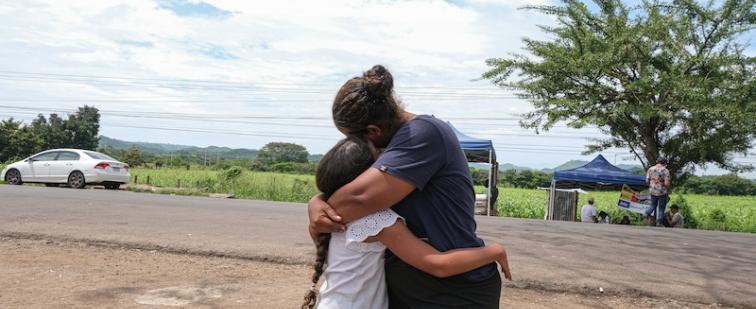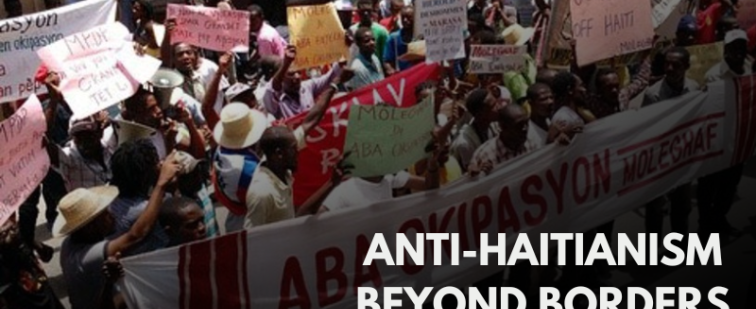Home
In August the Cuban authorities briefly detained a musician, Gorki Águila, 40, and charged him with “social dangerousness,” a crime punishable with up to four years’ imprisonment. Gorki, as he is widely known, is the lead singer and figurehead of Porno Para Ricardo, a punk rock band that has, since its formation in 1998, made increasingly direct and vulgar pronouncements against the Cuban leadership. (The band’s lyrics radicalized considerably after Gorki’s first imprisonment in 2003 after a conviction on drug charges.1) The band’s logo features the hammer and sickle, with the hammer in the form of a phallus, and their song lyrics lambaste the leadership as inept, decrepit, and repressive. Arrested presumably for his critical lyrics, Gorki was ultimately convicted of “public disorder” (for the band’s noisy rehearsals) and released with a fine.
On May 1, 2007, thousands of Los Angeles residents took to the streets to reprise the massive immigrant rights march that captured the nation’s attention a year earlier. The day began with a peaceful march of about 25,000 people in downtown Los Angeles, followed by a smaller afternoon march to MacArthur Park. Sadly, violent police misconduct abruptly ended this second rally. In half an hour, more than 450 police officers forcibly broke up the rally of 6,000 to 7,000 people, according to the Los Angeles Police Department’s own report. The LAPD reported that no marcher was arrested for fomenting this violence. At the same time, it accepted responsibility for having injured 246 people with “more than 100 baton strikes” and at least 146 “less-than-lethal impact munitions” (i.e., hard rubber bullets).
On March 25, CNN’s Anderson Cooper 360 rolled into El Paso to report on Mexican drug-cartel violence. Cooper was one more in a recent wave of national news heavy-hitters to parachute in, scare the pants off millions of viewers, and then jet off to the next headline destination.
Since January 1959, nearly half a century ago, U.S. mass media have reflected the views of the U.S. government and systematically misreported the Cuban Revolution. This should not surprise readers familiar with the equally unrevealing journalism on revolutions in Russia and China, although notable exceptions in each case shined beacon lights on reality. In 1957 Herbert Matthews, like John Reed in Russia and Edgar Snow in China, wrote front-page stories on Fidel Castro’s guerrilla band in Cuba’s eastern mountains. He emphasized the brutality of Fulgencio Batista’s dictatorship and U.S. support for that corrupt and brutal regime, portraying Fidel as a democrat who followed a long line of Latin American revolutionaries. After the revolution triumphed, Lee Lockwood’s photojournalism for Life marked a second exception in which facts placed in context emerged from the stories.
Last January in northern Nicaragua, as a crowd of hundreds blockaded the Panamerican Highway late into the cool Monday night—soaking tires in gasoline before setting them on fire, hurling rocks at police and TV cameramen, bringing traffic to a standstill for 10 miles—the words once again began appearing in news reports and political speeches and inside the National Assembly debate halls: No Pago, No Pago!
On Sunday, September 27, a violent conflict broke out in El Estor, a municipality near Guatemala's Pacific coast, between members of a Q'eqchi' community called Las Nubes and private security guards of the Guatemala Nickel Company (CGN), a subsidiary of the Canadian mining company, Hudbay Resources. Community members report that CGN's security forces kidnapped and killed Adolfo Ich Xamán, a local teacher and community leader, and gravely injured eight others.
On October 9 a United Nations human rights panel issued a warning concerning the presence of contracted foreign paramilitary forces operating inside Honduras. According to the UN Working Group on the Use of Mercenaries, an estimated 40 members of the infamous United Self-Defense Forces of Colombia (AUC) have been hired by wealthy Honduran landowners to defend themselves "from further violence between supporters of the de facto government and those of the deposed President Manuel Zelaya." As Zelaya's Foreign Minister Patricia Rodas notes, it is widely believed that these mercenaries are being used to "do the dirty jobs that the armed forces refuse to do."
The decision by a Miami court on October 13 to reduce Antonio Guerrero's life sentence to 22 years imprisonment is the latest chapter in the ongoing legal battle to free a group of men known as the Cuban Five. The case is inextricably linked to the ongoing standoff between Havana and Washington. In the early 1990s, the Cuban government sent a group of men to the United States to infiltrate violent anti-Castro organizations, which had been operating from Miami with apparent impunity since the 1960s. After these anti-Castro organizations orchestrated the bombings of Cuban hotels and the shooting down of a Cuban passenger aircraft near Barbados in 1976, the Cuban government decided to take covert actions, believing that Washington was not interested in preventing more attacks.
During Hugo Chávez's tour of nine countries across northern Africa, western Asia and Europe in early September, the Venezuelan president orchestrated the signing of a flurry of energy accords. Much ink was spilled over Chávez's agreement to exchange oil for machinery and technology with the West's favorite pariah, Iran. But the most far-reaching commitments Chávez secured on his trip took place in Moscow—a series of accords with Russian oil and gas firms to develop a block of the massive Orinoco belt in northeastern Venezuela, one of the largest oil fields in the world.
As Mexico's bloody crackdown on drug trafficking continues, Guatemala's physical location and recent military ties to Mexico make it an inevitable haven for Mexican drug cartels seeking to continue doing business. Guatemala, however, is far less equipped to handle the burgeoning problem than its larger and wealthier neighbor, and now drug-related corruption and violence are being added to the seemingly interminable list of challenges to this small country's hope for democratic peace and security.












